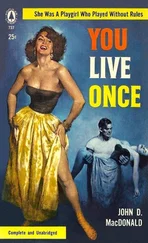1 ...6 7 8 10 11 12 ...17 Also at night came the older women worn out by childbirth. Baba gave them herbs to toughen their wombs, keep a new child from taking root. These women seemed more ashamed than the girls; they bowed their heads and gulped, these women who had borne ten or twelve children and felt guilty for calling a halt to it.
I watched all these things and stored them away.
One day in the village I heard rumors of a soldiers training camp nearby. The people spoke of a new recruit, a monstrous man of unnatural size and animal appetites, who ate flesh raw, wrestled bulls to the ground, and howled at the moon. The army officers hoped to train him, he would make a marvelous killing machine. The officers were having difficulty teaching him, he seemed not to understand their words and would sit moaning and scratching for hours. When provoked he went on rampages. People said he had already killed two men during one of his panics. But the officers would not give up, they would break him like a wild horse if necessary.
As I heard the story, my heart leaped up, then dropped like a stone.
It was Ari. I was sure of it. I would find him if I could, and take him with me wherever I went. It seemed an easy plan, in my head.
I did not like the way people spoke of him. He was not the monster they made him out to be. The things they said were true and not true at the same time.
Soon after, I was awakened late in the night by footsteps. The house was full of the heavy bumbling sounds of men. Their smell, manure and iron, reached my nostrils. I opened the door that connected the shed to the main room of the house, and peered in.
More than a dozen men from the village crowded the room. Baba stood among them, yellow eyes unblinking. No one spoke. Each man handed her something: a bag of sugar, silver coins, a basket of eggs. The men seemed restless, shifting their feet, with sweat standing out on their faces and necks. When Baba had received all the gifts she went to the door of the secret room, unlocked it, and led the men inside.
About fifteen minutes later they emerged. They seemed even more agitated than before and did not want to leave. But Baba herded them out and locked the door behind her. The men filed out into the snow.
On subsequent nights I awoke more and more often, to hear the shuffling of heavy feet and to witness the silent ceremony of gifts and visits to the secret room.
The next time I passed through the village I overheard the men talking in the blacksmith’s shop. They were talking in hushed tones of a love sickness, they spoke of going to Baba’s house to get the cure. It was a dangerous addiction, they said.
One of these men passed me later in the street. He was black haired and red skinned; he gave me a mocking smile, touched his cap, and went on his way.
I recognized him. He was one of Baba’s nighttime guests; his wife had borne him fourteen children and had recently come to Baba for an herb to stop a fifteenth.
I chopped wood and great horny calluses rose up on my hands.
One morning Baba was called away early to assist at a premature birth. When I was sure she had gone I began exploring her shelves, peering in boxes, holding jars up to the light. I heard a faint tune; at first I assumed it was something in my own head. But it did not go away, it went on and on and grew faintly annoying.
It was coming from the secret room.
It was the same voice I had heard many times before. But today it was clearer than ever.
I turned to look and nearly dropped the bottle I was holding. She had forgotten to lock the door, it was slightly ajar.
I put the bottle back on a shelf and walked toward the door as softly as I could, which was not soft at all, considering my cloddish shoes.
I pushed at the door and stepped inside.
The room was swathed in lace, yards and yards of it, the sort Baba spent hours knitting in the evenings. It draped the walls, hung in festoons from the ceiling. A fire burned brightly in a stone fireplace. The room was so warm I felt the sweat pop out on my face.
An enormous bed filled most of the room, a high bed covered in more lace, finely woven shawls, and quilts. And on this bed lounged such a girl as I had never seen before.
She lay sprawled in a loose robe, regarding me with unconcerned green eyes. She had the softest, whitest flesh I had ever seen; her face, her throat, her hands were smooth and unblemished. Her robe had fallen open in the front; I could see one of her breasts, a pale perfect mound. It looked like something rich and creamy you could eat with a spoon. Most extraordinary of all was her hair: somewhere between red and gold, it hung loose from her head, cascaded over the pillows, her shoulders, lay on the floor in a thick shining carpet. I was nearly stepping on it.
That rotten sweet smell was even stronger here.
Her face was pale and flowerlike; the cheeks were two spots of pink that I suspected were painted on. I gaped. She did not seem human; I wondered if she was something Baba had created: carved out of soap, baked in the oven, cultivated in the dark like a mushroom.
Close the door, cow-eyes, there’s a draft, she said. Her voice was that annoying singsong that had faintly haunted the house since I arrived.
I closed the door and stepped closer. I knelt beside her and studied her. I could not resist poking her arm; her flesh was as cushiony as it looked. It was flesh that had never worked or sweated under the sun. I poked her again. I fingered a thick handful of hair. She was a fascinating plaything. She lay there limply, regarding me indifferently.
Baba said there was a girl here, but she did not want you to see me, she said.
Why? I said, watching the hair slide and shimmer like water.
She said in her grating voice: I hate it here, I’m going mad in this room.
How long have you been here?
More than two years, I think. I’m not sure.
Why don’t you leave then? I said.
At that she raised herself up and began tossing aside the blankets that covered her lower body. Her legs entranced me: smooth, white, hairless. And then I saw that she had no feet.
How …
She leaned back and sighed. She told me how a man had gotten her into trouble, a married man her father’s age who pushed her down in the forest without a word and held her there. She had been in trouble and had heard Baba could help her out of it.
She said: I used to live in a village far away, I had to walk all night to get here, it was terribly cold and by the time I arrived my feet were frostbitten. Baba got rid of the baby, and I hardly felt it, for the pain in my feet. I got terribly sick and she took care of me for weeks, and when I came out of the fever I found myself here, in this room, and Baba told me my feet had turned black and fallen off, she hadn’t been able to save them from the frostbite. I couldn’t go home, after the trouble with the man, so she has kept me here, all this time.
Your hair, I said. Has it always been like this?
No, she said, it’s Baba’s doing, she rubs a horrible green paste into my scalp every night, and then it grows like weeds.
I said: Those men, why do they come here at night?
She laughed shrilly and said: They like to look. All they do is stand around and stare, with their mouths hanging open and their hands in their pockets. They stink, and they say the stupidest things.
Do they touch you?
Baba won’t let them, she has told them I am some kind of ridiculous fairy creature, and if they touch me I’ll shrivel up and turn to dust.
And they believe that?
Men are foolish, she said, they believe what they want to believe.
They only look?
Yes, Baba tells them that what they feel is an illness that requires a cure. Whether they believe that or not, they keep coming back. And bringing friends.
Читать дальше












